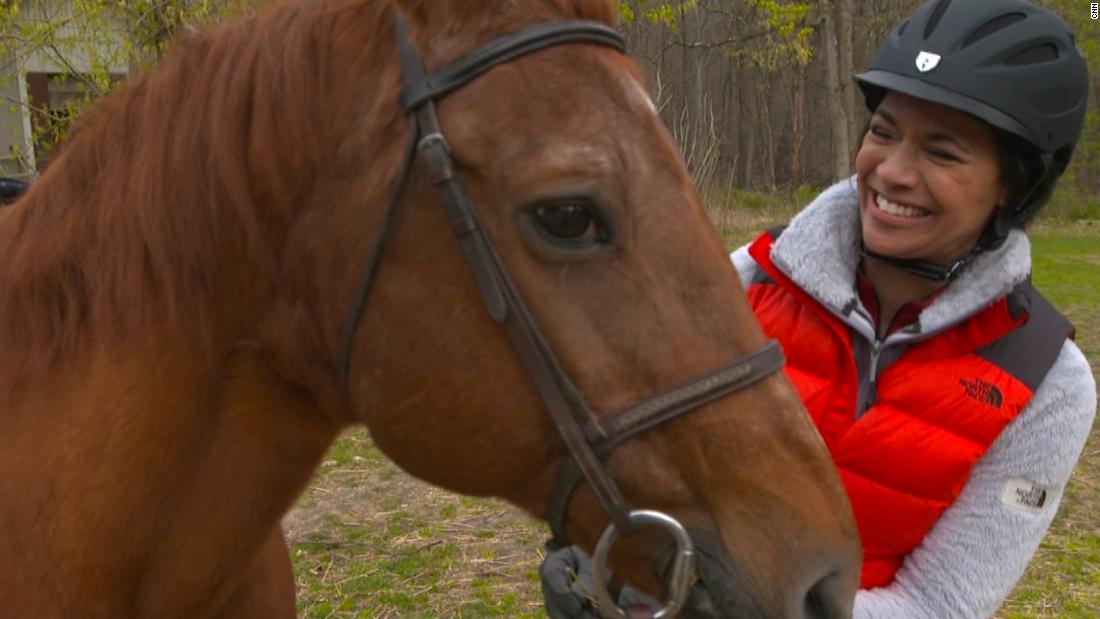Understanding PTSD in Veterans: The Role of Equine Therapy in Treatment

Post-Traumatic Stress Disorder (PTSD) is a debilitating mental health condition that affects many veterans. The unique challenges faced by those who have served in the military can leave lasting emotional scars that often require specialized treatment. While traditional therapies have proven effective in managing PTSD symptoms, an innovative approach called equine therapy has emerged as a powerful tool in treating veterans’ mental health. In this article, we will explore the benefits of equine therapy for PTSD, shedding light on its effectiveness and how it can provide a pathway to healing and recovery.
The Burden of PTSD
When veterans return from their service, they often carry the invisible wounds of war. PTSD can manifest in various ways, such as intrusive memories, nightmares, hypervigilance, and emotional numbness. These symptoms disrupt daily life, strain personal relationships, and hinder overall well-being. Mental health support for veterans is crucial to help them regain control over their lives and find peace within themselves.
Equine Therapy for PTSD: A Unique Approach
Equine therapy, also known as horse therapy or equine-assisted psychotherapy, is a form of experiential therapy that involves interactions between veterans and horses under the guidance of trained professionals. Horses possess a remarkable ability to sense and respond to human emotions, making them ideal therapeutic partners. This unique approach provides a safe and supportive environment for veterans to address their trauma and develop coping mechanisms.
Building Trust and Emotional Connection
Veterans with PTSD often struggle to establish trust with others, including therapists and loved ones. Equine therapy offers a breakthrough by fostering trust and emotional connections with the horses. Horses are perceptive animals that respond to subtle cues, allowing them to mirror the emotions and behaviors of their human counterparts. Through consistent interaction with the horses, veterans learn to communicate non-verbally and build a foundation of trust, which can extend beyond the therapy session into their everyday lives.
Managing Emotions and Developing Coping Strategies
Equine therapy helps veterans explore and manage their emotions in a safe and supportive environment. Horses offer immediate feedback, reflecting the emotional state of the veterans. For instance, the horse may also become restless if a veteran is anxious or agitated. This dynamic interaction prompts veterans to recognize their emotions and make positive changes to calm themselves. Over time, this newfound awareness helps them develop healthier coping strategies, reducing the intensity and frequency of PTSD symptoms.
Empowerment and Self-Reflection
Equine therapy empowers veterans by giving them a sense of purpose and accomplishment. Working with horses requires patience, empathy, and assertiveness, all of which are essential skills for veterans to rebuild their lives. Veterans gain a renewed sense of self-worth and confidence as they navigate the tasks and challenges presented during equine therapy sessions. By caring for and interacting with the horses, they can reflect on their own behavior and develop insights into their struggles, facilitating personal growth and healing.
The Healing Power of Nature
Equine therapy often takes place in tranquil outdoor settings, allowing veterans to connect with nature, which can profoundly impact their mental well-being. Spending time outdoors and engaging with animals can reduce stress, improve mood, and increase happiness. Nature offers a soothing backdrop for therapy, encouraging veterans to open up and explore their emotions in a relaxed and peaceful environment.
Complementary Approach to Traditional Therapy
It is important to note that equine therapy is not a standalone treatment for PTSD but rather a complementary approach to traditional therapy methods. Equine therapy can be integrated into an overall treatment plan alongside counseling, medication, and other evidence-based therapies. By incorporating equine therapy into the veterans’ mental health support system, a comprehensive and holistic approach to healing can be achieved.
How Equine Therapy Works
Equine therapy operates on the principles of human-animal interaction and its therapeutic benefits. The bond formed between veterans and horses during therapy sessions can be attributed to several key factors:
1. Non-judgmental and Unconditional Acceptance: Horses are naturally non-judgmental beings, providing veterans with a sense of acceptance and understanding. They offer companionship without prejudice, allowing veterans to feel safe and free from judgment, which can be essential in addressing the deep-rooted emotions associated with PTSD.
2. Mind-Body Connection: Interacting with horses requires physical and mental engagement. Veterans learn to regulate their breathing, be aware of their body language, and focus on the present moment. These practices promote mindfulness, grounding the veterans in the present and helping them develop a stronger mind-body connection.
3. Mirror Effect: Horses are highly perceptive animals and have a remarkable ability to mirror the emotions and behaviors of humans. The horse will reflect that energy if a veteran is anxious or tense. This mirroring effect offers immediate feedback and is a powerful tool for self-reflection and emotional exploration.
4. Building Trust and Communication Skills: Trust and effective communication skills are crucial to the therapeutic process. Veterans learn to communicate with horses through equine therapy using non-verbal cues, body language, and assertiveness. This practice extends beyond the therapy session and enhances veterans’ ability to establish trust and effective communication in their personal relationships.
Conclusion
PTSD is a complex condition that demands tailored solutions to facilitate healing and recovery. Equine therapy for PTSD has emerged as a powerful and effective tool among veterans. Interested in supporting veterans on their journey to healing and recovery from PTSD? Discover the transformative power of equine therapy through the Wounded Warrior Project.
Supporting this innovative approach to mental health support can help empower veterans to overcome their trauma and regain control over their lives. Let’s stand beside those who have served our country and provide them with the tools and resources they need to heal.
